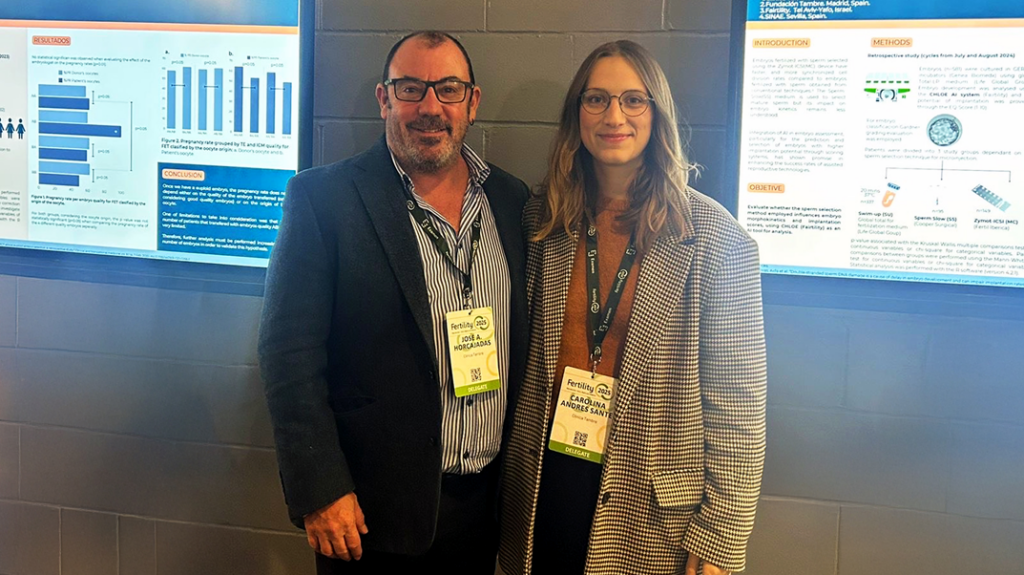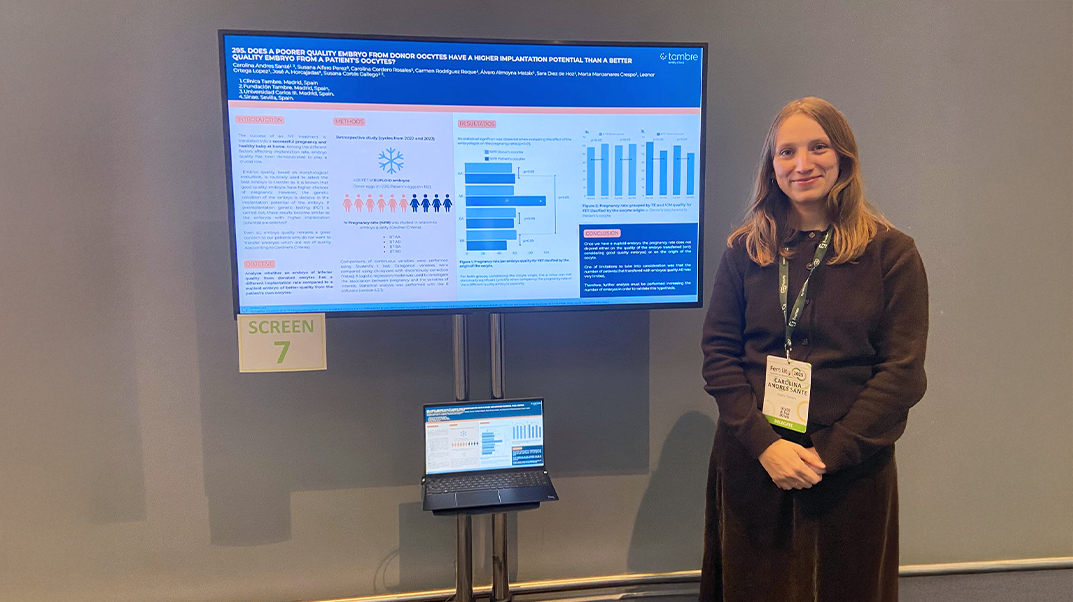Table of contents
Fertility 2025 Congress Liverpool
Clinica Tambre is committed to research and excellence in reproductive medicine. As such, conducting scientific studies is a fundamental part of our DNA. The clinic recently presented two innovative studies at the Fertility 2025 congress, held in the United Kingdom and organised by the Association of Reproductive & Clinical Scientists, the British Fertility Society, and the Society for Reproduction and Fertility.
Influence of Embryo Quality and Origin
One of these studies, presented as a poster by Tambre embryologist Carolina Andrés, is entitled “Does a Poorer Quality Embryo from Donor Oocytes Have a Higher Implantation Potential than a Better Quality Embryo from a Patient’s Oocytes?”. The study addresses a crucial question for those seeking fertility treatments: the influence of embryo quality and origin on implantation rates.
Donor eggs
The primary objective of the research was to determine whether a lower-quality euploid embryo, derived from donor eggs, has a different implantation rate compared to a higher-quality embryo obtained from the patient’s own eggs. This question is particularly relevant for patients who, despite having euploid embryos, are concerned about how embryo quality might influence the success of their treatment.
To address this issue, Tambre’s laboratory analysed 408 single frozen euploid embryo transfers conducted between 2022 and 2023. The study assessed the impact of embryo quality and egg origin on pregnancy rates. Embryo quality was classified based on Gardner’s criteria, which evaluate the expansion and appearance of the blastocyst—the day-five or day-six embryo ready for uterine implantation. The letter A indicates the highest quality, while B denotes slightly lower quality.

Findings
The study results show that when transferring good-quality euploid embryos, pregnancy rates are not affected by either embryo quality or egg origin. Furthermore, no statistically significant differences were found between blastocysts derived from donor eggs and those from patients across different embryo quality levels.
These findings provide reassurance to patients, indicating that once a euploid embryo with a normal genetic profile is confirmed, embryo quality within the parameters considered good, as well as the origin of the egg, do not significantly influence implantation rates.
“We aim to help every patient with clear strategies to achieve pregnancy in the shortest possible time,” explains embryologist Carolina Andrés, regarding the objectives of Tambre’s studies.
Commitment to Excellence in Fertility
The event was attended by senior embryologist Carolina Andrés, scientific advisor José Antonio Horcajadas, Regional Director of Growth and Partnership Katie Lawless, and Tambre’s CEO, Inge Kormelink.
Clinica Tambre’s participation in the Fertility 2025 congress reinforces our commitment to research and the continuous improvement of fertility treatments. With over 45 years of experience, Tambre leads advanced reproductive medicine, specialising in complex cases. To this end, we offer precise diagnoses and personalised treatments that significantly increase the chances of achieving pregnancy.
Does a poorer quality embryo from donor oocytes have a higher implantation potential than a better quality embryo from a patient’s oocytes? C. Andrés, S. Alfaro, C. Cordero, C. Rodríguez, Á. Almoyna, R. Pandolfi, G. Domínguez, S. Díez, M. Manzanares, L. Ortega, J.A. Horcajadas, S. Cortés

